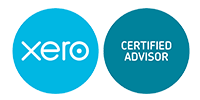
For both people and companies, managing taxes is a crucial component of any financial planning. But navigating it can be difficult because of the constantly shifting tax landscape and complicated laws in the United Kingdom. Creating efficient solutions is crucial for navigating tax complexities, ensuring compliance, and maximizing tax savings. Let’s look at some important tax management tactics.
Stay Informed: To navigate tax complexity successfully, it is crucial to stay informed about the latest tax laws, regulations, and updates. Regularly review government publications, consult reputable tax resources, and seek guidance from tax professionals. By staying up-to-date, you can adapt your tax strategies and take advantage of any new tax incentives or deductions.
Engage Tax Professionals: Tax laws are intricate and subject to interpretation. Engaging the services of tax professionals, such as certified accountants or tax advisors, can provide valuable expertise and guidance. They can help you understand complex tax rules, identify tax-saving opportunities, and ensure compliance with all applicable tax laws.
Tax Planning: Proactive tax planning is essential for effective tax management. It involves assessing your financial situation, identifying potential tax implications, and implementing strategies to minimise tax liabilities. Tax planning should be an ongoing process that considers your short-term and long-term goals, as well as any changes in tax laws or your financial circumstances.
Deduction and Credit Optimisation: Understanding available deductions and credits is crucial for effective tax management. Identify deductions and credits that apply to your specific situation, such as business expenses, education credits, or energy-efficient home improvements. Maximise these opportunities by keeping accurate records, maintaining proper documentation, and consulting tax professionals for guidance.
Compliance and Record-Keeping: Compliance with tax laws is essential to avoid penalties and legal consequences. Develop robust record-keeping practices to ensure accurate reporting and documentation of income, expenses, and relevant financial transactions. Maintaining organized records will facilitate tax preparation and help substantiate any claims or deductions during an audit.
Evaluate Business Structure: For business owners, choosing the right business structure can have significant tax implications. Assess different business structures, such as sole trader, partnership, limited company (LTD), or corporation, considering factors like liability protection, operational flexibility, and tax advantages. Consult tax professionals and legal advisors to determine the most tax-efficient structure for your business.
Proactive Tax Risk Management: Be proactive in managing tax risks by conducting regular tax risk assessments. Identify potential tax risks and develop strategies to mitigate them. This includes monitoring changes in tax laws, understanding potential tax controversies, and implementing internal controls to ensure accurate reporting and compliance.
Utilise Tax Software and Tools: Tax software and online tools can streamline tax preparation and simplify the tax management process. Explore reputable tax software options that can help you with accurate calculations, electronic filing, and tracking important deadlines. However, it’s essential to use reliable and up-to-date software to ensure accuracy and security.
Seek Professional Advice for Complex Situations: For complex tax situations, such as international tax issues, mergers and acquisitions, or estate planning, seek specialised professional advice. Tax professionals with expertise in these areas can provide guidance tailored to your specific circumstances, helping you navigate intricate tax rules and optimize tax outcomes.
In conclusion, handling tax complexity successfully necessitates a proactive and knowledgeable approach. You may negotiate the intricacies of the tax system by remaining informed, working with tax specialists, adopting proactive tax planning, maximizing deductions and credits, maintaining compliance, and utilizing tax-advantaged accounts. Consider your company’s organizational structure, control tax risks, use tax tools and software, and seek expert guidance in difficult cases. You may accomplish efficient tax management, maximize tax savings, and assure tax law compliance by putting these techniques into practice.




